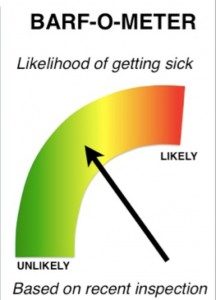Back in the old, folky days, I ran into Jack Woodall a couple of times and we kept up an Internet-based chat of mutual respect.
 First time I met him, about 1995, Jack said to this kid, So you’re that guy who does Food Safety Network. How’d you start?
First time I met him, about 1995, Jack said to this kid, So you’re that guy who does Food Safety Network. How’d you start?
Jack and his Promed listserv were always more professional than the deadline-based approach I took to informing the world about food safety stuff.
This was 1995. It would be another year before Al Gore would invent the Internet, my fourth daughter had just been born (she’s 21 and living in Vancouver, doing fine, having survived her mother and me) and I was a student trying to get my PhD.
So it was with sadness and continual respect that I read of Jack Woodall’s death on Monday evening, 24 Oct 2016, London time.
To say that Jack was critically important to ProMED-mail’s birth, growth, and successes would be a vast understatement. His creativity and foresight led to ProMED’s creation, to building it from its 40 original members to the over 80 000 we have today. On his watch, ProMED grew from a handful of dedicated volunteers in 1994 to more than 50 professionals in 35 countries today.
Jack articulated and focused the guiding principles that remain integral to our philosophy today. He understood that transparency in disease reporting is necessary for the early discovery of outbreaks. In an era when the International Health Regulations only required a handful of diseases to be reported by the member countries, Jack prided himself on beating the official sector in the public dissemination of outbreak reports. The One Health concept underpins all of our efforts at ProMED. Jack saw early on that so many emerging pathogens were zoonotic and that you could not begin to understand emerging infectious diseases without understanding the health of agricultural animals, wildlife, and the environment. Finally, Jack believed that ProMED should be seen as a complement to the traditional public health system, not an antagonist. That we should not criticize the action (or inaction) of governmental health authorities, but through our example, encourage them to make the right decisions, especially toward transparency.









